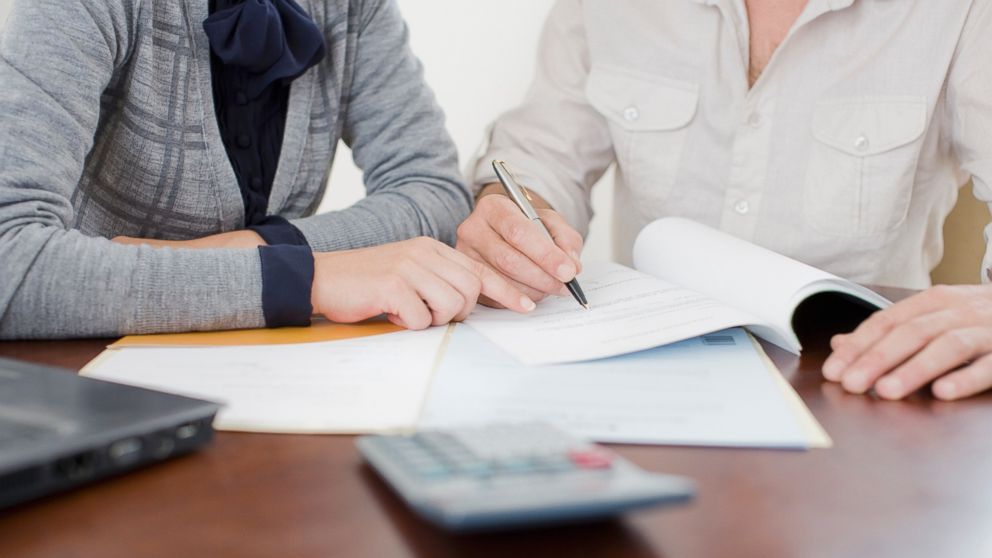What Order Do You Pay Bills When You Can’t Pay Them All?
Some debts should take a higher priority.

— -- An illness or job loss can overwhelm a household budget that had been working just fine. You think you have all the bases covered -- and then something goes horribly wrong and suddenly there are more payments due than there is money. Which bill do you pay first?
First, you'll want to ensure that you have the basics: a roof over your head, transportation to work (or job interviews), electricity, water and groceries. Then look at the bills you have been paying and decide if some expenses can be eliminated, at least temporarily. Examples are cable, subscriptions and other non-essential items. If you have federal student loans, you can investigate deferment so that you don't have to make payments until you have some financial breathing room. That may help you chop the bills down to something you can come closer to being able to pay.
Food costs, in particular, may be more flexible than you think. Check out tips and tricks for lowering grocery costs -- and if you are unaccustomed to cooking at home, now's the time to learn. (Bonus: You are likely to consume far less processed food than when you were better able to afford convenience items.)
More From Credit.com: 12 Ways to Cut Costs at the Grocery Store
An expense you should try to keep paying is your health insurance premium. First, you are now required by law to have health insurance. And second, the risks of going without it are too great if a member of your family develops a health problem. Also resist the temptation to skimp on healthcare, though you may find ways to get needed care for less (at the health department or a low-cost clinic). Vehicle maintenance also needs to be a priority.
Scary as it may be, it's a good idea to pull your free annual credit reports and your credit scores while you are struggling. Make sure those records are accurate. You also want to be sure that you are aware of all debts listed on your credit reports and that you don't have any negatives on your credit report that you hadn't been aware of. (If you find mistakes, you should dispute them.) If you are able to get through the crisis with your credit intact, that's the best scenario.
Which Creditors to Pay First
Check any loan documents to find out if you have secured loans, where the object you bought is at risk of repossession if you don't pay. If those items are essential to you (say it's the car you drive to work), then repayment is a priority. But if the item really is not essential (a recreational vehicle, for example), it's more important to keep putting food on the table. While a collections account would hurt your credit score, you might be able to avoid it by calling the lender and explaining the situation or selling the item yourself if you think it would bring enough money to satisfy the loan.
Credit cards are a fairly low priority. If you need to conserve all you can, consider making minimum payments. As long as you make the minimum payments on time, your credit scores shouldn't take a nosedive -- unless you start maxing out your cards.
If medical bills are the reason you are suddenly unable to make ends meet, try getting in touch with your healthcare provider to see what arrangements can be made. In some cases, payment plans can be arranged or fees can be reduced. You won't know until you ask. Also, go over bills carefully to be sure the patient actually received every service that was billed for. Hospitals can and do make mistakes. If you or a family member need continuing care, be sure the medical professionals are aware of your finances. In some cases, there are programs that pay for medications, or doctors may offer samples or stick with cheaper, generic medicines. Not only that, but stress over finances can affect your physical health.
More From Credit.com: How Medical Debt Can Impact Your Credit Score
Garage sales and the like can also help you convert no-longer-needed items into the cash you need. Those ideas work best if not being able to pay bills is a temporary obstacle and you can reasonably expect cash flow to improve.
But there are other cases in which repayment seems completely unrealistic. In that case, it may be time to consult an attorney about bankruptcy. Bankruptcy will hurt your credit, but it may also give you a fighting chance at getting back on your feet financially.
More From Credit.com: How to Rebuild Your Credit After Bankruptcy
Here's one big don't: Don't raid your retirement funds to try to pay your creditors. Many people consider bankruptcy later than they should have -- after they have taken money out of accounts that would have been protected in a bankruptcy. And with a few exceptions, retirement accounts are.
Being unable to meet all your financial obligations is scary, but knowing how to order your bills by priority can at least help you ensure that your family's most basic needs will be taken care of first.



